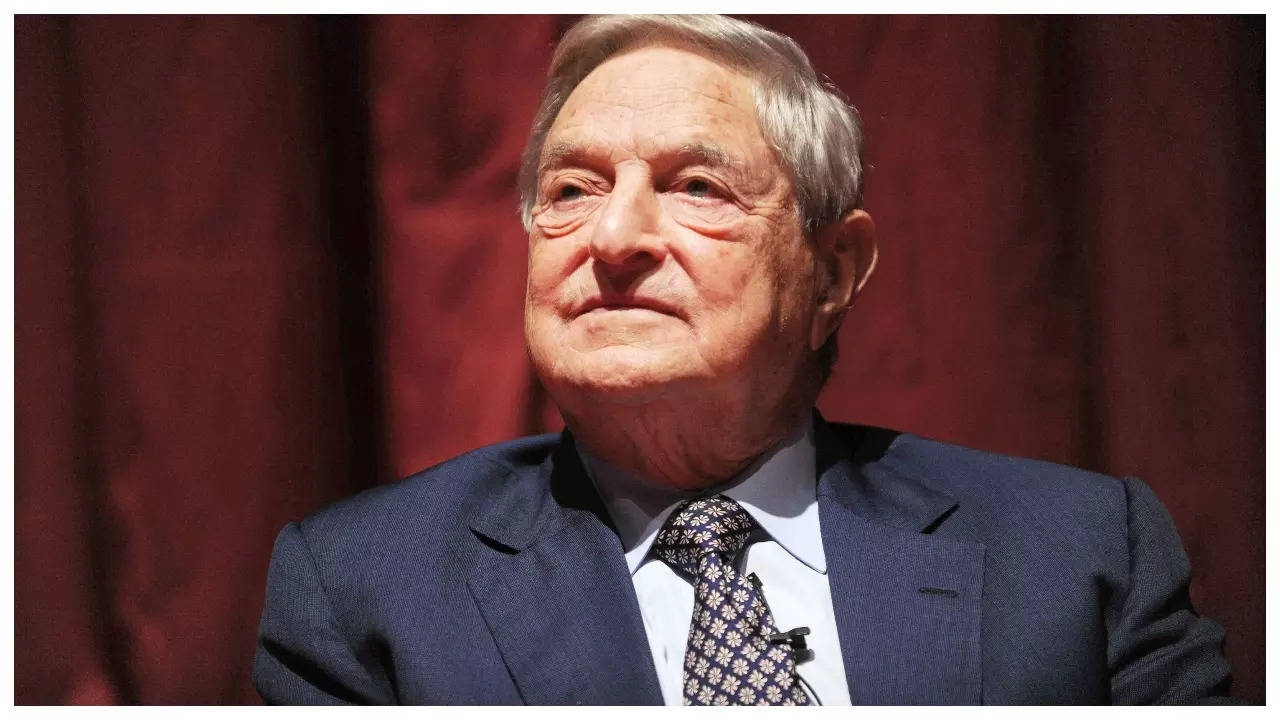New Delhi: The Supreme Court On Wednesday, a report by the anti-India George Soros-linked Organized Crime and Corruption Reporting Project (OCCRP) was dismissed as inauthentic, which was relied upon by the media for its coverage. Hindenburg ResearchClaim of stock manipulation by Adani Group SEBI’s failure to investigate allegations of companies and short-sellers.
A bench of Chief Justice DY Chandrachud and Justices JB Pardiwala and Manoj Mishra said the petitioners have based their case solely on the findings drawn from the report of OCCRP, a third-party organization involved in investigation reporting. “The petitioners have not made any effort to verify the authenticity of the claims,” the bench said.
On November 24, when the Supreme Court completed hearing the arguments of the petitioners and SEBI, Solicitor General Tushar Mehta had informed the court that SEBI has made available documents to prove the allegations made against Adani Group for the purpose of investigation. Wrote to OCCRP to get it done. However, OCCRP responded by saying that the regulator could “obtain the same documents that we used from an NGO run by Prashant Bhushan”, it had said.
I am writing the decision, CJI Chandrachud Said, “Reliance on newspaper articles or reports by third party organizations to question the comprehensive investigation by a particular regulator does not inspire confidence. Such reports made by ‘independent’ groups or investigative pieces by newspapers do not inspire confidence. or may act as inputs before the Expert Committee. However, they cannot be relied upon as conclusive evidence of the inadequacy of SEBI’s investigation. Nor, as the petitioners have contended, can such inputs can be considered ‘reliable evidence’. The veracity of the inputs and their sources must be demonstrated to be spotless. Petitioners cannot claim that an unverified report in newspapers should have credibility upon investigation conducted by a statutory regulator, which The investigation has not been thrown into doubt on the basis of solid material or evidence.
The SC also faulted Bhushan for citing a 2014 letter by the Department of Revenue Intelligence (DRI) to SEBI, which alleged Adani Group’s overvaluation of imports of power equipment from its UAE-based subsidiary. There were warnings about possible stock market manipulation by companies. Bhushan had alleged that SEBI failed to act on the inputs.
In response, SEBI had informed the Supreme Court that the DRI, after a thorough investigation, could not establish the allegations. The order of the DRI Additional Director General was challenged by the Customs Commissioner before CESTAT, which rejected the petition in November 2022 after concluding that the allegations of overvaluation were not proved. The CESTAT order was upheld by the SC in March 2023. Blaming the petitioner for raising again the same issue which had been concluded, the bench said, “Therefore, the claim of the petitioner that SEBI was negligent in its investigation is not correct. Reference to the letter sent.”
After the committee submitted its report in the Supreme Court, Bhushan had also leveled conflict of interest allegations against Justice Sapre committee members OP Bhatt, KV Kamath and advocate-cum-financial law expert Somashekhar Sundaresan. The charge against Sundaresan was that he had represented an Adani group company, also in an unrelated case, in 2007.
A bench of Chief Justice DY Chandrachud and Justices JB Pardiwala and Manoj Mishra said the petitioners have based their case solely on the findings drawn from the report of OCCRP, a third-party organization involved in investigation reporting. “The petitioners have not made any effort to verify the authenticity of the claims,” the bench said.
On November 24, when the Supreme Court completed hearing the arguments of the petitioners and SEBI, Solicitor General Tushar Mehta had informed the court that SEBI has made available documents to prove the allegations made against Adani Group for the purpose of investigation. Wrote to OCCRP to get it done. However, OCCRP responded by saying that the regulator could “obtain the same documents that we used from an NGO run by Prashant Bhushan”, it had said.
I am writing the decision, CJI Chandrachud Said, “Reliance on newspaper articles or reports by third party organizations to question the comprehensive investigation by a particular regulator does not inspire confidence. Such reports made by ‘independent’ groups or investigative pieces by newspapers do not inspire confidence. or may act as inputs before the Expert Committee. However, they cannot be relied upon as conclusive evidence of the inadequacy of SEBI’s investigation. Nor, as the petitioners have contended, can such inputs can be considered ‘reliable evidence’. The veracity of the inputs and their sources must be demonstrated to be spotless. Petitioners cannot claim that an unverified report in newspapers should have credibility upon investigation conducted by a statutory regulator, which The investigation has not been thrown into doubt on the basis of solid material or evidence.
The SC also faulted Bhushan for citing a 2014 letter by the Department of Revenue Intelligence (DRI) to SEBI, which alleged Adani Group’s overvaluation of imports of power equipment from its UAE-based subsidiary. There were warnings about possible stock market manipulation by companies. Bhushan had alleged that SEBI failed to act on the inputs.
In response, SEBI had informed the Supreme Court that the DRI, after a thorough investigation, could not establish the allegations. The order of the DRI Additional Director General was challenged by the Customs Commissioner before CESTAT, which rejected the petition in November 2022 after concluding that the allegations of overvaluation were not proved. The CESTAT order was upheld by the SC in March 2023. Blaming the petitioner for raising again the same issue which had been concluded, the bench said, “Therefore, the claim of the petitioner that SEBI was negligent in its investigation is not correct. Reference to the letter sent.”
After the committee submitted its report in the Supreme Court, Bhushan had also leveled conflict of interest allegations against Justice Sapre committee members OP Bhatt, KV Kamath and advocate-cum-financial law expert Somashekhar Sundaresan. The charge against Sundaresan was that he had represented an Adani group company, also in an unrelated case, in 2007.






